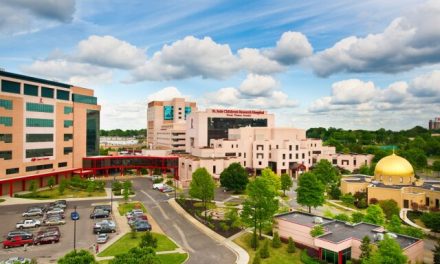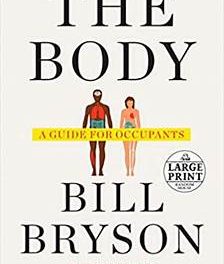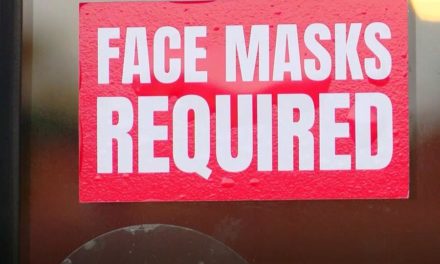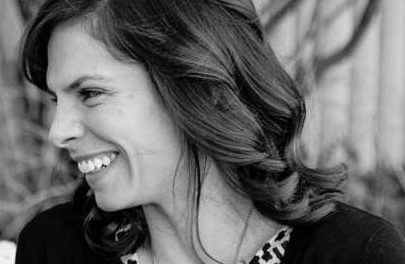Church Health Center and Christ Community Health Services deservedly grab the headlines, but there are clinics like DarSalud working largely under the radar, addressing the needs of patients in an emerging blend of care that is medical, social, and personal.
In this way, DarSalud may be on the leading edge of a transition that’s taking place for many clinics as they address more and more the medical and the non-medical in order to serve patients best.
Most of all, DarSalud is living out its name, which translates to “give health” in Spanish. While it offers expertise in diabetes, obesity, and cardiovascular risk, it’s within a primary care context for patients who are often immigrants, front line workers, and low-income families.
All of this has come into stark relief in the midst of the covid-19 pandemic. Because of the disproportionate risk factors associated with a city like Memphis with high poverty rates and the attendant health issues.
“They don’t increase the chances of getting Covid but they do increase the severity if they get it,” said Pedro Velasquez, operations manager at DarSalud. “It’s about more than testing for Covid. It’s about people taking control of chronic conditions. We’ll see how it progresses in a second wave, so we’re definitely leaning toward prevention.”
Risks Factors
It’s a significant mission.
After all, the risk factors here have been the same for decades but take on new importance in light of COVID-19. Chronic diseases here (in order) are heart disease, cancer, diabetes, asthma, hypertension, high cholesterol, and coronary artery disease.
Seven out of 10 people are obese. One in three people has diabetes, and on average, one person dies daily from it.
The top 10 causes of death in Memphis are:
- Heart disease
- Cancer (malignant neoplasms)
- Injury
- Stroke
- Alzheimer’s Disease
- Chronic Lower Respiratory Disease
- Diabetes
- Flu/pneumonia
- Homicide
- Blood Poisoning (septicemia)
Lessons
Following Centers for Disease Control guidelines at DarSalud’s three locations, Dr. Pedro A. Velasquez-Mieyer, medical director, and Claudia Neira, nurse practitioner, have adjusted to the needs of patients who often have access issues, rely on other people for transportation, or dealing with economic concerns.
In response to patients’ needs, the clinics have food distribution twice a week with 100 families served each day. “The best medicine is eating well,” said Mr. Velasquez. DarSalud began the program in November but it has become even more essential during the pandemic.
“It’s awesome how Memphis has responded. There’s a lot of giving going on in Memphis right now, and we want people to know that if they are not able to feed their families, there are options.”
Looking ahead and with its emphasis on its data-driven, evidence-based research, DarSalud officials foresee the potential for another spike in Covid-19 cases between October and February. “What we’re doing now is about treating but also about learning so people will have the foresight to remember lessons from today.”
Innovating
Economic pressures mean that some Hispanic patients have not been able to shelter in place because they work outdoors in landscaping, roofing, and home repair. Many are the only sources of income and are supporting their families in their country of origin.
While the safest behavior is to quarantine, this outside work is not high risk if you’re being safe,” said Mr. Velasquez. “Being outside and practicing social distancing and not being in close proximity and washing hands are not what will get you to contract Covid.”
To encourage safety while maintaining quality health care, DarSalud has emphasized its telemedicine leadership because some were ignoring their medical needs based on the opinion that only Covid is being treated. This could lead to health problems and trips to the emergency room where there was the highest risk for Covid.
“We’re trying not to replicate what others are doing,” said Mr. Velasquez which began its work with telemedicine in 2018 to use technology to connect, diagnose, and treat patients. Previously, Tennessee had regulations that restricted the use of telemedicine with the rule. For example, a patient had to be at a clinic with a doctor to connect with another doctor using telemedicine.
The rule was waived in the wake of the pandemic and DarSalud had launched its present program within a week in mid-March. Now seen as a leader in the field, Mr. Velasquez will lead a webinar with Tennessee health professionals, state officials, and insurance leaders on May 29 to demonstrate the power when treatment and technology are combined.
Caring and Curing
While this emphasis on caring and curing is difficult enough in the best of times, it becomes an even greater challenge to get the facts out in the midst of a pandemic, particularly one where conspiracies cloud facts, when talking points obscure scientific facts, and when politically motivated videos like Plandemic peddle lies and misinformation.
“We are a primary care model and deal in facts,” said Mr. Velasquez, adding that “our whole goal is to get patients to access health care with best practice models of care. “This calls on us to respond in culturally sensitive ways to people in different demographics and realize people in different environments respond differently. We know from our research that race has impact on access to care, what they can afford, and disproportionate impact on Covid. It’s all part an evidence-based approach to treatment.”
Cultural sensitivity is something DarSalud’s medical director knows well.
Dr. Velasquez-Mieyer graduated in 1983 with a degree from Universidad Central de Venezuela School of Medicine in Caracas. Ten years later, he was awarded a Harvard University Fellowship in Endocrinology and Diabetes. In 1997, he moved his family to Memphis where he began to work at Le Bonheur Children’s Hospital and University of Tennessee Health Science Center and later led development of DarSalud.
**
Join us at the Smart City Memphis Facebook page for daily articles, reports, and commentaries that are relevant to Memphis






